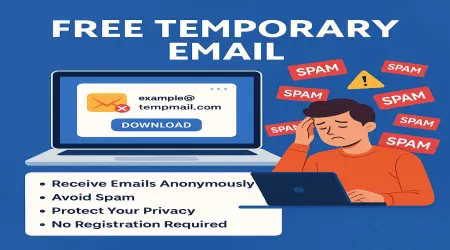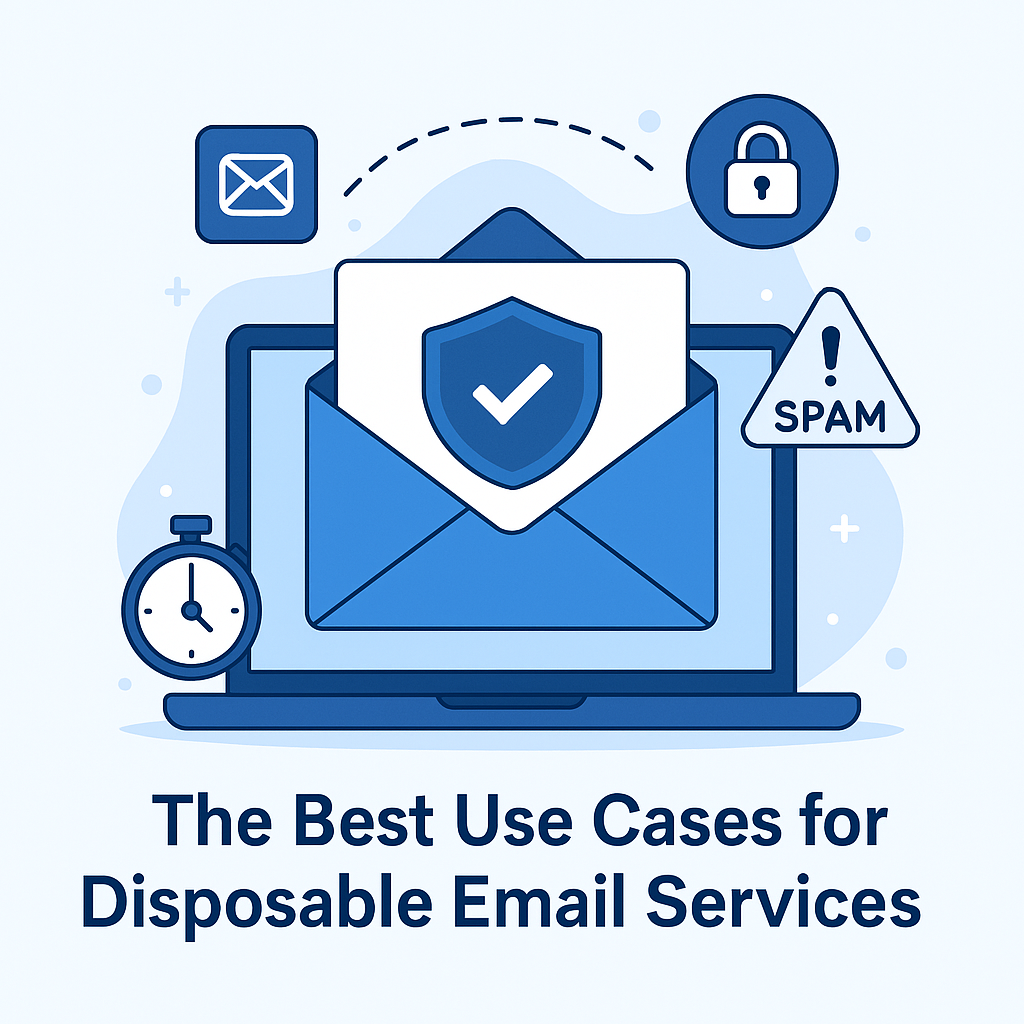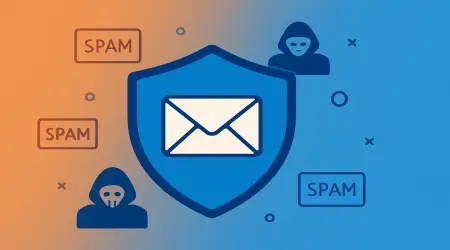

What Is a Temporary Email (Disposable Email) and Why You Need One in 2025
Introduction
In 2025, digital privacy is a top priority. Every online sign‑up, newsletter subscription, or app registration requires an email address — yet sharing your personal email everywhere exposes you to spam, phishing attacks, and potential data breaches.
A solution is temporary email, also called disposable email. These services create anonymous, short-lived email addresses that let you register on websites, receive confirmation links, and stay spam‑free without using your permanent inbox.
This guide explains what temporary emails are, how they work, their advantages, limitations, and why they’ve become essential tools for anyone navigating the modern internet.
What Is a Temporary Email (Disposable Email)?
A temporary email — also referred to as throwaway, disposable, or fake email — is an email address created for short‑term use. Unlike permanent emails (e.g., Gmail or Outlook), temporary addresses:
Expire automatically after a set time (minutes to hours).
Require no registration or personal information.
Are used primarily for receiving emails, not sending.
Are deleted permanently after expiration, leaving no trace.
Example of Temporary Email Services
Tempail
Temporary‑Email.net
10MinuteMail
Guerrilla Mail
TempMail
How Does a Temporary Email Work?
Visit a Temporary Email Provider
Services like Temporary‑Email.net automatically generate a random email address when you land on their homepage.Use the Email Address for Sign‑Ups
Copy the disposable address and paste it into registration forms, online contests, or any platform requiring verification.Receive Messages Instantly
Incoming emails (e.g., verification codes or links) appear in the temporary inbox within seconds.Automatic Expiration
After the set time (10 minutes to 24 hours), the email address and messages are deleted permanently.
Why Do You Need a Temporary Email in 2025?
1. Protect Your Privacy
Your permanent email is tied to personal data like your name, phone number, and even your purchasing history. By using a disposable email, you avoid exposing personal details to untrusted websites.
2. Avoid Spam
Most marketing emails and promotional spam originate from sign‑ups. Temporary emails isolate these messages, keeping your primary inbox clean.
3. Test Services Without Commitment
Developers, marketers, and curious users often test apps or websites. Disposable emails allow quick testing without permanent accounts.
4. Prevent Data Breach Risks
In 2025, data breaches remain common. Using a temporary email ensures breached accounts don’t compromise your main identity.
5. Manage Multiple Accounts
For social media managers or gamers needing multiple profiles, temporary emails simplify the process without cluttering a personal inbox.
Benefits of Temporary Emails
Instant Setup: No registration required — just open and use.
Anonymous: No personally identifiable information (PII) stored.
Spam-Free: Keeps your main inbox clean and organized.
Free to Use: Most services are 100% free with no hidden fees.
Cross‑Device Compatibility: Accessible on desktop, mobile, or browser extensions.
Limitations and Drawbacks
Short Lifespan: Not suitable for accounts requiring long‑term access.
Receive‑Only: Most disposable emails can’t send messages.
Public Inboxes: Some services use shared domains, so anyone guessing the address can see incoming emails.
Blocked by Certain Sites: Some websites reject disposable email domains during sign‑up.
No Recovery Option: Once expired, emails and accounts are unrecoverable.
Permanent vs Temporary Email: Key Differences
| Feature | Permanent Email (e.g., Gmail) | Temporary Email (e.g., Tempail) |
|---|---|---|
| Privacy | Linked to your identity | Anonymous, no sign‑up |
| Spam Protection | Requires filters and rules | Auto‑deletes after expiration |
| Longevity | Long‑term | Short‑term (minutes/hours) |
| Account Recovery | Possible (password reset) | Impossible after expiration |
| Use Case | Personal, professional | Quick sign‑ups, anonymous use |
Best Use Cases for Disposable Emails
Free trials and promotions: Avoid recurring marketing emails after trying a service.
Newsletters and eBooks: Access gated content without revealing your real address.
Social media testing: Create secondary profiles for marketing or research.
Forums and communities: Post anonymously without spam risk.
Public Wi‑Fi or risky sites: Stay anonymous while exploring unknown platforms.
Popular Temporary Email Services in 2025
1. Temporary‑Email.net
Private inboxes and fast expiration
Mobile‑friendly and modern design
Stronger privacy than older public services like Yopmail
2. Tempail
Simple interface
Public inbox with auto‑expiration
Popular for quick sign‑ups
3. TempMail
Multiple domains available
Mobile apps for Android and iOS
Auto‑refreshing inbox
4. 10MinuteMail
Classic 10‑minute expiration
Extendable lifespan if needed
Minimal setup
5. Guerrilla Mail
Customizable usernames
Spam filtering features
Longer expiration options
6. Teamail (Emerging)
Encrypted disposable emails
Flexible lifespan (hours/days)
Designed for advanced privacy users
Security Tips When Using Temporary Emails
Avoid Sensitive Accounts
Never use disposable emails for banking, personal social media, or government services.Use with VPN or Proxy
Hide your IP address to ensure full anonymity.Clear Cookies and Cache
Prevent tracking even when using temporary addresses.Check for HTTPS
Only use providers with secure (SSL) connections.Don’t Share Public Inboxes
Treat disposable email addresses as private during use.
Future of Temporary Emails (2025 and Beyond)
AI‑driven spam filters to identify phishing in temporary inboxes
Custom domain temporary emails for personal branding and privacy
Integration with password managers for seamless login experiences
Blockchain‑based anonymous messaging for ultimate security
As online privacy concerns grow, disposable emails will remain crucial tools for individuals and businesses alike.
FAQs About Temporary (Disposable) Emails
Q: Are temporary emails legal to use?
Yes. They are legal for personal privacy and spam prevention. Misuse for fraud is prohibited.
Q: Can I send emails from a temporary address?
Most disposable services are receive‑only to prevent abuse.
Q: How long do temporary emails last?
Typically between 10 minutes and 24 hours, depending on the provider.
Q: Are temporary emails really anonymous?
Yes — most services do not log personal information. However, some may log IP addresses for security.
Q: Can I recover expired emails?
No. Once expired, disposable emails and their contents are permanently deleted.
Conclusion
In 2025, temporary (disposable) email services are indispensable for anyone concerned about spam, anonymity, and online security. Whether you’re signing up for a free trial, accessing a one‑time download, or testing a website, these tools protect your identity and keep your main inbox clutter‑free.
Combine disposable emails with VPNs, encrypted messaging, and strong password practices for maximum online privacy. As the internet evolves, so do the threats — but temporary emails remain one of the simplest and most effective privacy solutions available today.
Target Keywords
temporary email 2025, disposable email benefits, anonymous email guide, avoid spam email, free temp mail services

